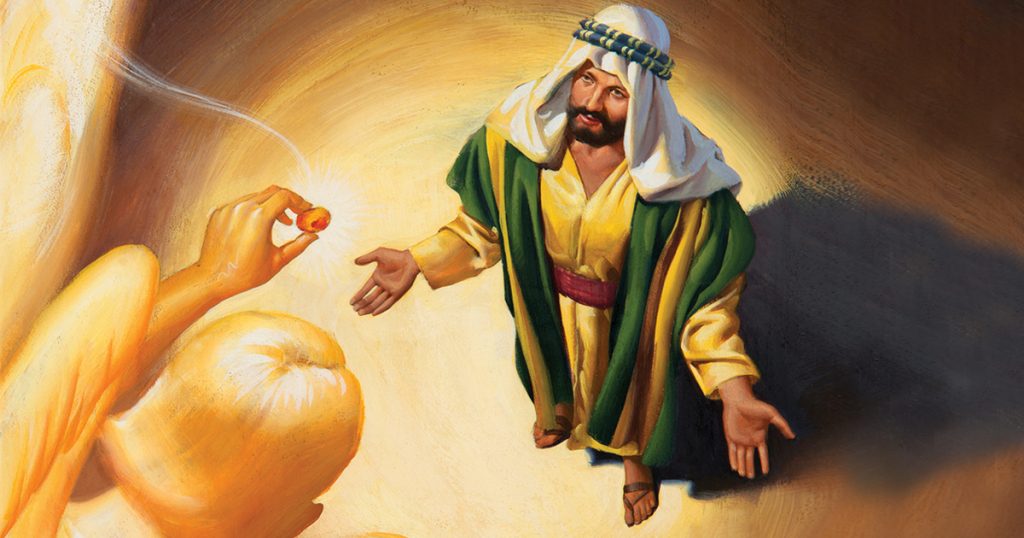God’s Name Proclaims His Righteousness
"The vision the prophet had in the Temple in Jerusalem made it clear that he was to be a preacher of repentance."
God is absolutely holy; that means He is perfectly righteous. This is the fundamental difference between God and human beings—in fact, the very thing that separates them. “The Lord looks down from heaven at the human race, to see if there is anyone who is wise and seeks God. Everyone rejects God; they are all morally corrupt. None of them does what is right, not even one!”(Psalm 14:2–3 NET)
Here is a sampling of what God’s righteousness looks like, in the language of the Contemporary English Version:
- He is a good God who always does the right thing. “The Lord is a mighty rock, and he never does wrong” (Deuteronomy 32:4).
- He is a truthful God who does not lie. “God is no mere human! He doesn’t tell lies or
change his mind” (Numbers 23:19a). - He is a faithful God who is true to His word. “God always keeps his promises” (Numbers 23:19b).
- He is an unbiased God who ultimately gives each one what they deserve. “Our Lord, you always do right, and your decisions are fair” (Psalm 119:137).
- Except that: He is a compassionate God who loves to forgive those who seek Him.“You don’t stay angry forever; you’re glad to have pity and pleased to be merciful” (Micah 7:18–19).
- He is a gracious God who is kind to those who follow Him. “You are wonderful, and while everyone watches, you store up blessings for all who honor and trust you” (Psalm 31:19).
God is incorruptible and unchanging. He works according to His will.The Westminster Confession, prepared in 1646 at the request of the English Parliament, declares that God is “most free, most absolute; working all things according to the counsel of his own immutable and most righteous will.”
To hallow God’s name is not simply to acknowledge its holy character; we hallow God’s name when our reverence is accompanied by a holy life. There are deeply religious people who take their beliefs very seriously but whose worship is not acceptable to God because their lives are not lived in accordance with His will.
The prophet Isaiah lived during a time of considerable spiritual decay among the people of Judah—God’s people. A significant theme of the book that bears Isaiah’s name is a repeated call to turn back to God. The vision the prophet had in the Temple in Jerusalem made it clear that he was to be a preacher of repentance. Isaiah saw the exalted Lord sitting on a throne and flanked by winged heavenly beings called seraphs. The word seraphmeans “burning one,” suggesting the brilliant appearance of these beings, yet they hid their faces from the greater brightness of God’s presence. The seraphs called out to one another, “Holy, holy, holy, is the Lord Almighty; the whole earth is full of his glory.”(Isaiah 6:3)Isaiah was terrified. He suddenly recognized the vastness of his separation from the divine perfection of God. He was overwhelmed by a realization of his unworthiness to behold that glory, and he cried out: “I am ruined! ForI am a man of unclean lips, and I live among a people of unclean lips.” (Isaiah 6:5) But then God, the very God who had just revealed His glory, revealed His mercy. One of the seraphs touched Isaiah’s lips with a burning coal from the altar and said, “See, this has touched your lips; your guilt is taken away and your sin atoned for.” (Isaiah 6:7) Then, immediately, God called Isaiah into ministry; and immediately Isaiah responded, “Here am I. Send me!”(Isaiah 6:8)







